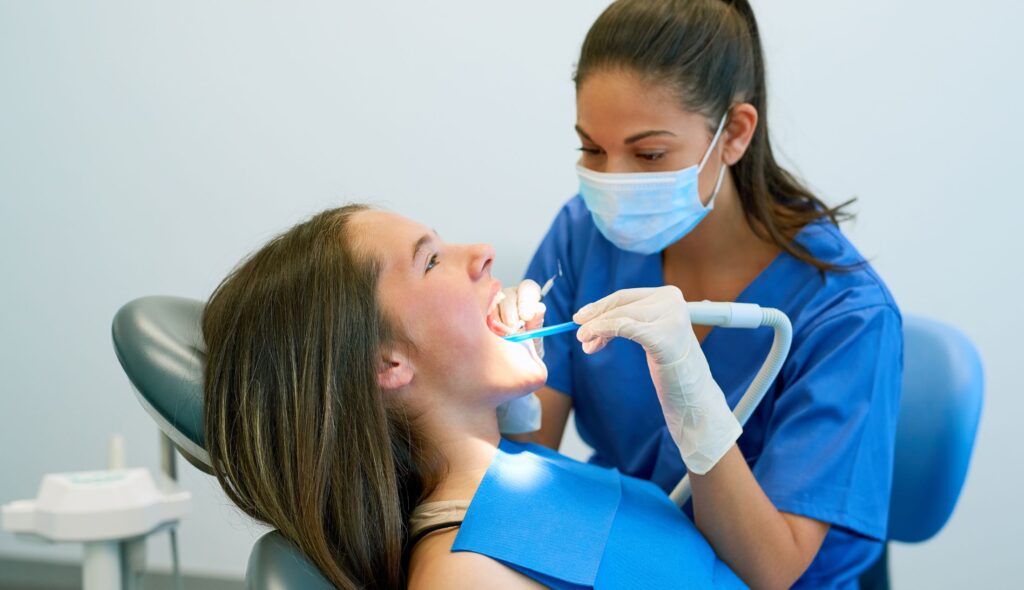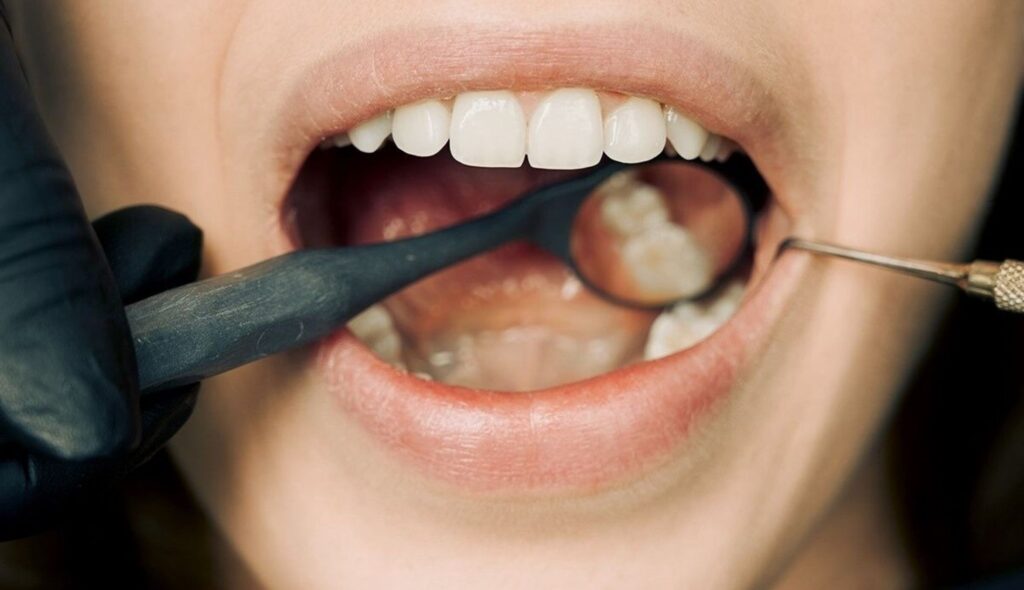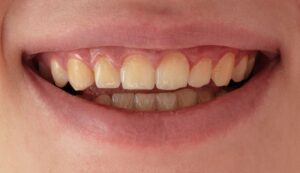
For many years, people believed that wisdom teeth should always be removed. It was common to remove them even before they caused teeth problems. But today, dental experts are rethinking that advice. In this blog post, we’ll explain why experts now say not to remove your wisdom teeth, when it’s still necessary to take them out, and how you can keep them healthy if they stay in. This post is based on trusted sources and updated dental research.
What Are Wisdom Teeth?

Wisdom teeth are your third set of molars. Most people get them between the ages of 17 and 25. Long ago, they helped our ancestors chew rough, raw food like nuts and roots. But today, our diets are softer, and our jaws are smaller.
Because of this, many people don’t have enough room in their mouths for wisdom teeth to grow properly. That’s why these teeth can cause problems like pain, crowding, or infection.
But here’s the truth: not all wisdom teeth cause issues, and that’s where new expert opinions come in.
Why Experts Now Say Not to Remove Your Wisdom Teeth
Dental experts used to remove wisdom teeth even if they were healthy just to “prevent” future problems. But now, research shows that this might not be necessary.
Here are the top reasons why experts now recommend a more careful approach:
1. Not All Wisdom Teeth Are Harmful
Many people have wisdom teeth that come in straight, cause no pain, and stay healthy for years. If a tooth is not bothering you, removing it might do more harm than good. Dentists now say that if a wisdom tooth is healthy, fully grown in, and easy to clean, you can leave it alone.
In fact, a study published in the American Journal of Public Health found that most wisdom teeth don’t need to be removed if they are not causing problems.
2. Every Surgery Has Risks
Removing a wisdom tooth is a type of surgery. That means there are risks like infection, nerve damage, bleeding, and pain. While many extractions go smoothly, some people deal with serious side effects like:
- Dry socket (a painful condition after surgery)
- Numbness in the lips or tongue from nerve injury
- Swelling and infection
Experts now agree: if your teeth are not causing problems, it may not be worth the risk of surgery.
3. Better Monitoring Is Now Possible
Years ago, dentists didn’t have the tools to keep a close eye on wisdom teeth. Today, things have changed. X-rays and 3D scans make it easy to monitor how your wisdom teeth are growing. This helps dentists decide if removal is truly necessary.
So instead of rushing to remove them, many dentists now choose to watch and wait. If a problem ever shows up, then they’ll take action.
When Should Wisdom Teeth Be Removed?
Of course, not everyone can keep their wisdom teeth. In some cases, removal is still the best option.
You may need your wisdom teeth taken out if:
- They are impacted (stuck under the gum)
- They are growing sideways and pressing on other teeth
- They cause pain or infection
- They lead to cysts or damage the jaw
- They create crowding in your mouth
- You cannot clean them properly, causing decay or gum disease
If your dentist sees any of these signs, they may suggest extraction to protect your overall oral health.
How to Know If Your Wisdom Teeth Are Healthy
- No pain or swelling in the back of your mouth
- Healthy gums around the wisdom teeth
- No cavities or gum disease in that area
- Wisdom teeth are fully grown in and not pushing other teeth
Your dentist can check these things during a regular visit using an X-ray. If everything looks good, there’s usually no reason to remove them.
How to Care for Wisdom Teeth You Keep
If your wisdom teeth are healthy and you decide to keep them, it’s important to take good care of them.
Here are a few simple tips:
- Brush twice a day, including the back of your mouth
- Floss daily around your wisdom teeth
- Use mouthwash to reduce bacteria
- Visit your dentist every 6 months for a check-up
Wisdom teeth can be hard to reach, so taking time to clean them properly will help prevent future issues.
What the Research Says
The trend toward keeping wisdom teeth is backed by science. According to the American Association of Oral and Maxillofacial Surgeons, more than 60% of wisdom tooth extractions are unnecessary when based only on age or general guidelines.
Other research shows that healthy wisdom teeth rarely lead to problems later in life, especially when they grow in straight and are cleaned regularly.
That’s why so many experts now say it’s better to monitor wisdom teeth and remove them only if something goes wrong.
Why Experts Now Say Not to Remove Your Wisdom Teeth: Summary
- Wisdom teeth don’t always need to be removed
- Modern dental tools allow better monitoring
- Surgery comes with risks that aren’t always worth it
- Healthy wisdom teeth can stay in place for life
- Regular checkups help catch issues early
Wisdom Teeth Symptoms
Wisdom teeth usually appear between ages 17 and 25. Sometimes, they come in without causing any problems. But other times, they can cause symptoms that let you know something’s wrong.
Common wisdom teeth symptoms include:
- Pain or discomfort at the back of your mouth, especially around the gums near the wisdom teeth
- Swelling or redness in the gums near the wisdom teeth
- Tender or bleeding gums around the wisdom tooth area
- Bad breath or a bad taste in your mouth caused by trapped food or infection
- Difficulty opening your mouth or chewing due to swelling or pain
- Jaw pain or stiffness around the wisdom teeth
- Headaches or earaches related to the pressure and inflammation near the wisdom teeth
- Swollen lymph nodes in your neck if an infection is present
First Signs of Wisdom Teeth Coming In
When your wisdom teeth start to come in, you might notice some early signs. These signs show that your third molars are pushing through your gums.
Common first signs include:
- Mild pain or soreness at the very back of your mouth, where the wisdom teeth are growing
- Tender or swollen gums near the back corners of your jaw
- Redness or inflammation in the gum area around the new teeth
- Pressure or a feeling of fullness in your jaw or behind your other teeth
- Difficulty opening your mouth wide or chewing comfortably
- Bad taste or slight bad breath if food gets trapped near the new teeth
Sometimes, wisdom teeth come in slowly and without pain. Other times, they cause discomfort that comes and goes.
If you notice these signs, it’s a good idea to check with your dentist. They can take an X-ray to see how your wisdom teeth are growing and if they might cause problems later.
Disadvantages of Removing Wisdom Teeth
While removing wisdom teeth is common, it can come with some disadvantages and risks. Here are the main drawbacks:
Pain and Swelling: Surgery often causes pain and swelling that can last for several days.
Risk of Infection: The extraction site can get infected if not properly cared for.
Dry Socket: A painful condition when the blood clot at the wound site is lost, exposing bone and nerves.
Nerve Damage: Surgery can sometimes damage nearby nerves, causing numbness or tingling in the lips, tongue, or chin.
Jaw Stiffness: Swelling and soreness can make it hard to open your mouth or chew after removal. Because of these disadvantages, many experts now recommend only removing wisdom teeth if they cause pain, infection, or other clear problems.
FAQ
Why you shouldn’t get your wisdom teeth removed?
Removing them without a clear reason can lead to avoidable risks like pain, infection, and nerve damage. Regular checkups can help monitor them safely.
Is it better to remove wisdom teeth or leave them?
It is better to leave wisdom teeth if they are healthy, fully grown in, and not causing pain or crowding. Experts now recommend removing them only if they cause problems like infection, pain, or damage to nearby teeth. Regular dental checkups can help decide what’s best for you.
Why do Americans remove wisdom teeth?
Many Americans remove their wisdom teeth because dentists often recommend it to prevent future problems. Common reasons include pain, crowding of other teeth, infection, or impacted teeth that don’t grow in properly. In the past, removal was routine even without symptoms, but now experts suggest keeping them if they are healthy.



